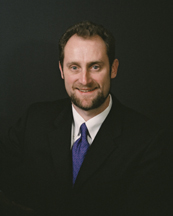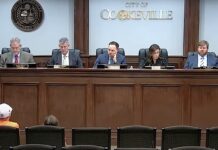By Jeff Jones
Special to the UCBJ
On June 4, 2018, the five-year saga of an unmade wedding cake came to a close. The United States Supreme Court, by a vote of 7 to 2, ruled in favor of Masterpiece Cake shop and its owner Jack Phillips on the issue of whether the State of Colorado could require him to make a custom wedding cake for a same-sex marriage, contrary to his religious beliefs. How the Court reached its holding, however, leaves some important questions for another day, while sending a clear message to governmental agencies that they may notbase decisions – or the application of even neutral laws – on anti-religious prejudice or a determination that some messages are worthy of protection, while others are not. Accordingly, the Court’s opinion is an interesting one in ongoing culture war over marriage, sexuality, and religious freedom in the marketplace.
In legalizing same-sex marriage, the Supreme Court held, in the words of the retiring Justice Anthony Kennedy, that “[t]the First Amendment ensures that religious organizations and persons are given proper protection as they seek to teach the principles that are so fulfilling and so central to their lives and faiths.” However, the question here is whether a business that provides certain wedding services, such as custom-made wedding cakes, may decline to provide such a service on the basis of the owner’s religious convictions on the nature of marriage. InMasterpiece Cake, LTD v. Colorado Civil Rights Commission, the Supreme Court offered a variety of opinions on that, but no clear answer. What was clear in this case is that the government in evaluating that question cannot have the process tainted by religious hostility.
Jack Phillips, the owner of Masterpiece Cake, operates his bake shop in Colorado in accordance with his Christian religious beliefs. He declines to make cakes or other baked goods that promote certain messages he finds offensive, or to celebrate certain events such as Halloween. In 2012, when a same-sex couple came into his shop looking to purchase a wedding cake for their reception, Mr. Phillips declined on the basis that he does not create wedding cakes for same-sex weddings. He was willing to sell them any other baked goods they wanted or for any other events they wished to celebrate, but due to his religious convictions on marriage, he would not participate in a same-sex wedding by making a custom wedding cake for the event. At the time of the request, same-sex marriage was not recognized in Colorado, so the wedding would take place in Massachusetts with a reception following in Colorado.
The State of Colorado has a law prohibiting discrimination in public accommodations that makes it “a discriminatory practice and unlawful for a person, directly or indirectly, to refuse, withhold from, or deny to any individual or a group, because of … sexual orientation … the full and equal enjoyment of the goods, services, facilities, privileges, advantages, or accommodations of a place of public accommodation.” The law covers any “place of business engaged in any sales to the public and any place offering services … to the public.” In this case, the Colorado Civil Rights Commission (the “Commission”) claimed that refusing to make a wedding cake for a same-sex couple – when the business offered to make wedding cakes for heterosexual couples – violated the statute and constituted discrimination on the basis of sexual orientation.
Mr. Phillips argued that he was entitled to an exception to the statute because participating in the same-sex wedding, even as tangentially as making the wedding cake, would violate his sincerely-held religious beliefs. Additionally, he claimed that a custom wedding cake expressed a message about the particular wedding itself, and in this case, such compelled expression would violate his free speech rights under the First Amendment.
The Supreme Court ruled 7-2 to reverse the Commission’s decision that Jack Phillips was required to make a custom wedding cake for a same-sex wedding on the same basis that he made them for others. However, the Court was fiercely divided on the most significant issues in the case. The Court was divided on whether Jack Phillips has a constitutional right to refuse to make a wedding cake for a same-sex wedding due to his religious beliefs. Likewise, the Court was divided on whether the making of a custom wedding cake was expressive conduct protected by the free speech clause of the First Amendment. Yet, seven justices agreed that because the Colorado Commission’s decision was so tainted by anti-religious bias, it could not stand.
The two main factors that caused the Supreme Court to reverse the Commission’s decision were (1) comments by at least two of the Colorado Commissioners expressing hostility toward Mr. Phillips’ religious beliefs on marriage, and (2) a seemingly inconsistent approach to handling complaints from another individual when three Colorado bakers refused to make him a cake expressing negative views toward same-sex marriage based on Biblical teaching. With regard to the first issue, the Court noted: “At several points during its meeting, commissioners endorsed the view that religious beliefs cannot legitimately be carried into the public sphere or commercial domain, implying that religious beliefs and persons are less than fully welcome in Colorado’s business community.” One commissioner suggested that Phillips can believe “what he wants to believe,” but cannot act on his religious beliefs “if he decides to do business in the state.” Another commissioner was quoted as saying, “Freedom of religion and religion has been used to justify all kinds of discrimination throughout history, whether it be slavery, whether it be the holocaust, whether it be – I mean, we – we can list hundreds of situations where freedom of religion has been used to justify discrimination. And to me it is one of the most despicable pieces of rhetoric that people can use to – to use their religion to hurt others.” The Court noted “This sentiment is inappropriate for a Commission charged with the solemn responsibility of fair and neutral enforcement of Colorado’s anti-discrimination law – a law that protects discrimination on the basis of religion as well as sexual orientation.”
Regarding the second issue, anti-religious bias, the Court took note of the Commission’s inconsistent application of the statute when it came to the provision of custom-made cakes. While the proceedings against Masterpiece Cake were pending, the Commission considered a complaint from another consumer who was denied a custom cake by three different Colorado bakers. The individual requested two cakes be made, both in the shape of an open book. On one were two Bible verses describing homosexuality as a sin and on the other was a picture of two groomsmen holding hands with a red X over them and the works “God loves sinners” and “While we were yet sinners, Christ died for us.” All three bakers refused to make the cakes, finding the messages offensive or derogatory, a sentiment with which the Commission agreed. Yet, when Mr. Phillips objected to making a cake for a same-sex wedding – believing the making of the cake would express approval for a union he found contrary to his faith – the Commission found his justification irrelevant and “irrational.” The Commission’s divergent outcomes were based on the Commission’s determination of what messages are offensive and which are not. As the Court held, such a rationale failed to provide a neutral application of constitutional principles to the issue at hand. According to the Court, it showed that the Commission made its determination out of a hostile view of Mr. Phillips’ religious convictions; messages disapproving of same-sex marriage were not protected, but messages promoting same-sex marriage were mandatory. As Justice Thomas explained in more detail in his concurring opinion, the government does not get to determine which messages are appropriate and which are not, and the government cannot force its citizens to adopt one particular point of view over another.
So, while the Court in this case was clear that the government may not act in a way that is hostile towards religion, it left for another day whether Jack Phillips has a right to decline to make a wedding cake for a same-sex wedding due to his religious beliefs. Four justices (Justices Ginsburg, Sotomayor, Stevens, and Kagan) expressed the view that the statute was neutral; so if Jack Phillips is going to make and sell wedding cakes, he must do so for same-sex couples as well. They also expressed their opinion that the differing treatment given to the consumer who requested cakes deemed derogatory of same-sex marriage was constitutionally permissible. Three justices (Justices Thomas, Alito, and Gorshich) would have ruled for Mr. Phillips on the merits, finding that the government could not force him to make a custom cake for an event that violated his religious beliefs. They also expressed the opinion that there was no justification for the difference in treatment between Mr. Phillips’ case and that of the customer who wanted a cake expressing the view that same-sex marriage was wrong. The Chief Justice did not disclose his thinking, while retiring Justice Kennedy was clearly conflicted on the appropriate resolution of those fundamental questions.
So, the battle between culture and religion in the area of marriage and sexuality continues, andbusiness owners remain caught in the middle. It is important to note that this casedoes not change the ongoing legal requirement for a business to provide reasonable accommodations for its employees’ religious beliefs and practices. However,the Supreme Court made clear that government officials cannot act out of anti-religious bias when deciding these difficult questions. Our new Supreme Court Justice may have to bring clarity to these difficult issues.
Jeffrey G. Jones is a regional managing member for Wimberly Lawson Wright Daves & Jones PLLC. He can be reached at jjones@wimberlylawson.com.









